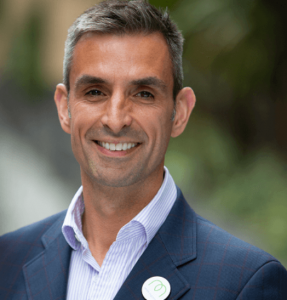THE bosses of 20 mental health organisation have written an open letter to the prime minister to step in and stop suicides which are being caused by the cost-of-living crisis.
The message, seen by Eastern Eye, warns Rishi Sunak that “people living in the most deprived 10 per cent of areas in the UK are more than twice as likely to die from suicide than those living in the wealthiest 10 percent”.
It is signed by one of the country’s foremost experts on mental health, Poppy Jaman, CEO of MindForward Alliance.
“During the pandemic we predicted what we then called a tsunami of mental health challenges coming,” she said.
“This was CEOs of mental health charities talking about the fact that data around the world shows that after a global trauma, a global incident, a traumatic incident, you get significant mental health difficulties within the communities that have experienced it.
“And that narrative was shut down.”
Now, said Jaman, the cost-of-living crisis and the aftereffects of the pandemic have made things worse.
“This year, it’s very difficult to say what the highlights were from my professional field, because in the last three weeks, I have had 10 conversations about suicide, one person died by suicide, three of my colleagues have been to funerals by suicide.
“So, I am ending on a year where we are seeing the accumulative exacerbated impact of the pandemic.”
What is making matters worse, she told Eastern Eye, was the lack of resources.

“Let’s not kid ourselves, [about] mental health difficulties, services being depleted, waiting lists being high, and seeing increased stresses in society, particularly around children and young people.
“They were all issues that were there, the pandemic exacerbated it, and I would say from a mental health perspective, poverty, inflation, they are the social determinants of health.
“What we’re seeing is significantly increased mental health difficulties, and I’ve never had such a short period of time where I’ve had so many suicide conversations, and it’s heart breaking.”
Compassion
The letter, which Eastern Eye has printed in full, urges Sunak to act with “speed and compassion”.
“Between April and September 2022, the Trussell Trust who provide emergency support to people in crisis issued 1.3 million food parcels,” the CEOs write.
“94 per cent of people accessing emergency food parcels are experiencing destitution.
“That means they are well below the poverty line and cannot afford the essentials to eat, stay warm and dry, and keep clean.
“This causes us grave concern and we urge you as the prime minister to work with your cabinet colleagues across government to urgently focus on building and resourcing a true cross government mental health strategy focused on reducing the social and economic inequalities which drive mental ill health and disparities in mental health outcomes.”

One of the signatories, Simon Blake, CEO of Mental Health First Aid England, told Eastern Eye that in the past decade employers had started to understand the need to focus on the challenges faced by their workers.
“The government report, Thriving at Work, published in 2017, was a rallying call for action based on the core belief that ‘good work’ supports our mental health.
“So much has changed since 2017.
“In the early stages of the Covid pandemic, employers accelerated and amplified their commitment to supporting wellbeing in the workplace.
“We must not go backwards, the focus on mental health is ever more important as we face high inflation and a cost-of-living crisis which will affect everybody, and those who are already experiencing inequality will be hit the hardest.
“We cannot take our foot off the pedal, and the prime minister must provide strong political leadership and reassert the importance business across the private, public and social sectors, from the largest to the smallest, doing all they can to create workplace cultures that support the mental health of all employees including signposting to services when they are needed.
“Businesses must do all they can, and our prime minister must act with speed and compassion to reduce mental ill health and prevent suicide by tackling the root causes of destitution and making sure every single household has the means to be safe, warm and clean with enough to eat.”
Cost of living crisis
Jaman also made the point that so-called middle-class parents are feeling the pinch.
“You cannot keep putting a sticking plaster on the problem,” she said.
“The system is so broken that we need to we need to fix the social determinants.
“There is no point going, well, actually, we’re gonna give people more talking therapy, and we’re going to medicate people.
“If people can’t feed themselves, if people can’t feed their kids, they’re not going to have good mental health.
“You are going to see horrible situations come out of that and significant trauma, and that’s really upsetting.”
Eastern Eye spoke to several south Asian families about the cost-of-living crisis on their mental health.
Experts know that south Asian communities are reluctant to acknowledge such problems, and they hide them because of the fear of shame and stigma.
Jaldeep from Leicester, not his real name, works in IT, and he has three children.
“It’s shameful that in 2022, I’m having to go to the gurudwara to have meals and make sure my kids get to eat,” he said.
“No-one knows about our problems because I’m so ashamed that I can’t cope.
“I’m the man, I should be able to provide for my wife and kids.
“I go around the house switching everything off, and during the past week when we had that freeze, we huddled around in blankets in one room, because we know we can’t afford the bills.
“I look at my kids, and they’re the reason I haven’t topped myself, but I’ve had those thoughts and things are getting worse.
“The prime minister’s Asian for God’s sake, and you’d think he gets it, but he doesn’t.”
UK economy
In April, global consultants, Deloitte, revealed that poor mental health costs the UK economy £56 billion a year.
It said, “New Deloitte survey found that 28 per cent of employees have either left in 2021 or are planning to leave their jobs in 2022, with 61 per cent citing poor mental health as the reason they are leaving.”
For the 20 mental health CEOs, the government must avert a growing crisis.
“They need to invest in the workforce mental health, and I’m not just talking about clinicians,” said MindForward Alliance’s CEO, Poppy Jaman.
“I’m talking about community development workers, I’m talking about support services in the community that help people, build friendships, build communities, build health.
“We need to create environments where people can get up and go to work without having to worry about childcare costs.
“That’s been a problem forever for women, particularly in this country.
“The pandemic has exacerbated that, and the government needs to be investing more in mental health prevention and promotion than they ever done before.”
Neither Downing Street nor the Cabinet Office responded to our request for a comment.
The letter signed by 20 mental health chiefs
December 14, 2022
Rishi Sunak, prime minister
WE ARE writing as a collective of leading mental health organisations in the UK. Together we have expertise in mental health and suicide prevention, clinical service delivery including psychiatry, service user participation, as well as local and national strategy.
In the UK the cost-of-living crisis runs deep in every community and is having a significant impact on mental health. High levels of inflation affect everyone as the price of necessities including food and energy increase.
However, the impact is not felt equally. We know those already experiencing inequality, poverty and hardship are being hardest hit. And we know that poverty is a significant driver of poor mental health in children.
We also know that people living in the most deprived 10% of areas in the UK are more than twice as likely to die from suicide than those living in the wealthiest 10% of areas.
In 2021, the Centre for Mental Health has estimated – through robust modelling methodology – that over 10 million people, which includes 1.5 million children, will need additional mental health support as a direct result of the pandemic.
Between April and September 2022 the Trussell Trust who provide emergency support to people in crisis issued 1.3 million food parcels. 94% of people accessing emergency food parcels are experiencing destitution. That means they are well below the poverty line and cannot afford the essentials to eat, stay warm and dry, and keep clean.
This causes us grave concern and we urge you as the Prime Minister to work with your Cabinet colleagues across government to urgently focus on building and resourcing a true cross government mental health strategy focused on reducing the social and economic inequalities which drive mental ill health and disparities in mental health outcomes.
We cannot stress strongly enough that the most important intervention to reduce mental ill health and to prevent suicide is to ensure that every single household has the basic means to be safe, warm and clean with enough to eat.
We urge you as prime minister to act with speed and compassion to tackle the root causes of destitution and in doing so prevent suicide and an inevitable rise in mental ill health.
Julie Bentley, Samaritans
Simon Blake OBE, Mental Health First Aid England
Sophie Cortlett, Mind
Brian Dow, Mental Health UK
Sean Duggan OBE, Mental Health Network, NHS Confederation
Akiko Hart, National Survivor User Network
Victoria Hornby OBE, Mental Health Innovations
Dr Sarah Hughes, Centre for Mental Health
Poppy Jaman OBE, MindForward Alliance
Dr Adrian James, Royal College of Psychiatrists
Tom Madders, Young Minds
Chris Martin, The Mix
Paula Ojok, The Helplines Partnership
Catherine Roche, Place2Be
Kathy Roberts, Association of Mental Health Providers
Catherine Roche, Place2Be
Mark Rowland, Mental Health Foundation
Michael Samuel MBE, Anna Freud Centre
Rosie Tressler OBE, Student Minds
